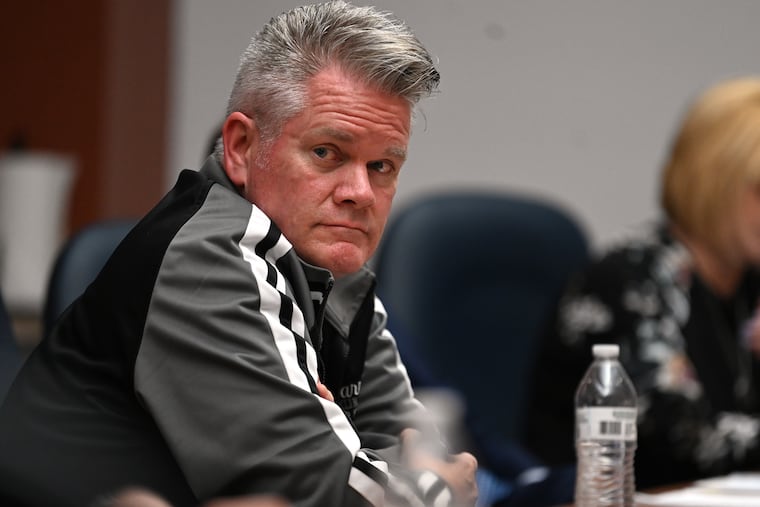Whistleblower who accused Franklin Towne of lottery manipulation has sued the charter for retaliation
Patrick Field, Franklin Towne’s chief academic officer, has been on paid administrative leave since May 12, five days after an Inquirer report detailing his allegations against the school.

The administrator who accused Franklin Towne Charter High School earlier this year of manipulating its lottery to exclude certain students and zip codes is now suing the school, saying it retaliated against him.
Patrick Field, Franklin Towne’s chief academic officer, has been on paid administrative leave since May 12, five days after an Inquirer report detailing Field’s allegations that the school’s CEO ordered the exclusion of students with behavioral issues and a number of majority-Black zip codes from January’s lottery.
Field — who first raised concerns to the president of the charter’s board of trustees in February — said in the lawsuit filed Friday that he was retaliated against and defamed for reporting the allegations about the top-performing Northeast Philadelphia charter, which enrolls about 1,300 students.
Field “has suffered damages of the loss of future employment opportunities, loss of tenure, status, professional, and personal reputation, and severe physical and emotional distress,” according to the lawsuit, which was filed in federal court against the charter, former CEO Joseph Venditti, and the school’s board of trustees.
Franklin Towne’s current CEO, Brianna O’Donnell, said Monday that “because the matter involves personnel issues,” she could not comment on the lawsuit.
However, Franklin Towne “denies the substance of the allegations” and “intends to vigorously defend itself,” O’Donnell said in an email.
The Philadelphia School District, which has moved to revoke the charter, declined to comment. Franklin Towne has sued the district, accusing it of bias and seeking to force the appointment of a different hearing officer to preside over the charter’s nonrenewal hearings.
Field came forward to the Inquirer earlier this year after discovering a file that appeared to demonstrate the exclusion of certain zip codes and students from the January lottery.
As publicly funded schools, charters are required to select students randomly — apart from certain preferences they’re allowed to grant, like automatically admitting siblings of current students.
But an Inquirer analysis of the January lottery results found an astronomically small chance they happened randomly — with students accepted from 22 zip codes, while those in 17 other city zip codes were excluded. Black residents were particularly disadvantaged.
“Venditti effectively gerrymandered Philadelphia using a line in order to reduce the probability that students from majority Black zip codes are randomly chosen through a legitimate lottery selection,” Field’s lawsuit said, noting that northeastern zip codes were favored in the January lottery, while southwestern zip codes were excluded. (An analysis by the school district found that Franklin Towne appeared to have also excluded certain zip codes in previous years.)
Field also said some students were placed on a “do not take” list at the direction of Venditti, who said he was tired of “bad kids” from “bad families” getting in, according to the lawsuit.
During an emergency board meeting on Feb. 27, Venditti tried to undermine Field by calling him a “thief” — citing a 10-year-old larceny charge that Field said was dismissed and expunged, according to the lawsuit.
Venditti also falsely accused Field of having pornography on his computer, the lawsuit said.
Venditti resigned during that meeting, which Field said he was excluded from attending. Rather than elevate Field, a 17-year administrator, the board approved a resolution put forward by Venditti to select Franklin Towne’s dean of students, O’Donnell, as the new CEO — preventing Field from “accessing additional evidence of the sham” and punishing him by denying him the opportunity for advancement, according to the lawsuit.
The board also voted down an investigation of Venditti; members who had voted in favor resigned from the board.
After coming forward, Field faced “marginalization and other hostility” from coworkers. He was then placed on leave in May.
Those actions were retaliatory, and illegal under federal law protecting whistleblowers, according to Field’s lawsuit, which also accuses Venditti of defamation and seeks compensatory and punitive damages.
While the lawsuit alleges Venditti orchestrated the lottery tampering, it says that other staff members were involved in carrying out the then-CEO’s directives — including the school’s IT director and a secretary.